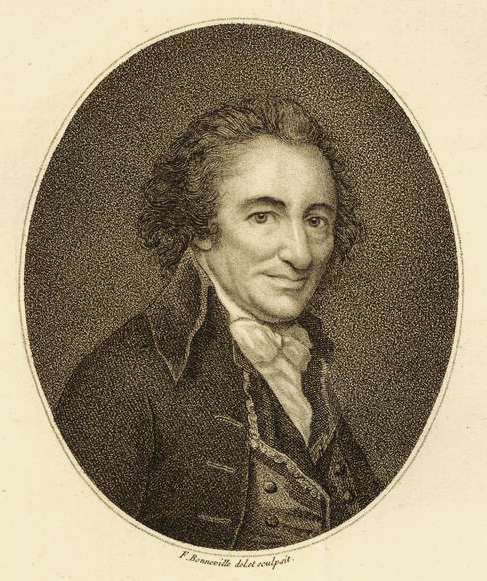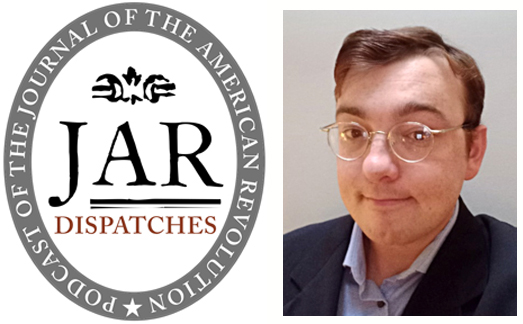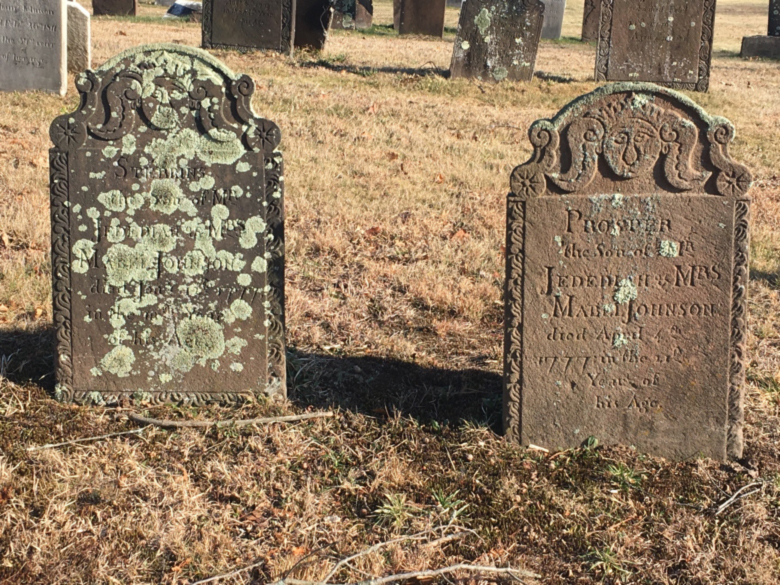 Signers of the Declaration of Independence are treated with particular reverence in American historical memory. Caesar Rodney, Delaware’s delegate to the Second Continental Congress, is no exception. He is remembered not just for his signature, but also his vote for independence and the mad dash he made to Philadelphia in time to cast it. His story has been recounted time and again in popular media for the benefit of generations of Americans who look to the Revolution as the seminal American event.
Signers of the Declaration of Independence are treated with particular reverence in American historical memory. Caesar Rodney, Delaware’s delegate to the Second Continental Congress, is no exception. He is remembered not just for his signature, but also his vote for independence and the mad dash he made to Philadelphia in time to cast it. His story has been recounted time and again in popular media for the benefit of generations of Americans who look to the Revolution as the seminal American event.
Rodney’s story goes like this: In the summer of 1776, Rodney was in his home colony when Delaware’s other two representatives at the Continental Congress became deadlocked regarding the issue of independence. A tie between them would preclude a unanimous vote from the colonies. When word of this conflict reached the Rodney, the third delegate, he mounted his horse and rode seventy miles to Philadelphia “with speed” to settle it. This was no small feat as Rodney was in terrible health. Yet many newspaper and magazine articles recalled that he strode into the hall still wearing spurs, and cast his vote in his riding boots.[1] His vote ensured unanimity in the matter of American liberty, and the rest was history.
Popular media recollections of Caesar Rodney are among many examined in the chapter “American Characters,” part of Popular Media and the American Revolution: Shaping Collective Memory, forthcoming in December from Routledge, Taylor and Frances.[2] It describes how Americans’ collective memory of the Revolution has manifested in media over three centuries, including stories of heroes and heroines who were not part of the military but whose contributions are remembered, especially in their own communities. “Collective memory” describes a nation’s, region’s, or community’s beliefs about the past – beliefs that sometimes reflect current needs more than what actually happened.
Rodney’s story illustrates the quirky nature of memory. Early published accounts of his revolutionary contributions did not mention his hectic ride and vote at all. Newspapers often included miscellaneous documents that related to the Revolution, and Niles’ Weekly Register in 1818 published correspondence between Rodney’s nephew and John Adams that focused on Rodney’s worthy participation in the Stamp Act Congress, and noted his “inflexibility of heart” as a statesman.[3]
New books sometimes inspired press stories and commentary. A smattering of newspapers in 1827 repeated a humorous anecdote about Rodney that had been included in the multi-volume Biography of the Signers of the Declaration of Independence published by R.W. Pomeroy.[4] The story illustrated Rodney’s “gaiety and humor” when he responded to a delegate from Virginia who had a history of holding his own colony above the others in “high-wrought eulogies.” The Virginia delegate believed a British incursion was imminent and asked for help for his constituents. Rodney,
…began with a crocodile sympathy, to deplore the melancholy and prostrate condition of his neighboring, extensive, and heretofore ‘powerful’ state of Virginia! But, said he, in a voice elevated an octave higher in concert pitch, ‘let her be of good cheer; she has a friend in need; Delaware will take her under its protection and ensure her safety.’[5]
The delegate from Virginia joined in the laughter, and the “subject lay over to another day.”[6]
The Port Folio magazine published the same anecdote as “worth remembering,” but criticized the book, noting that Rodney had been introduced with a “display of heraldry somewhat startling to a simple republican reader.” [7] Rodney, the article insisted, was a humble man who well deserved the confidence and friendship of George Washington. Americans in 1827 took pride in the fact that they had thrown off European aristocracy. Any man who enjoyed “displays of heraldry” would be unworthy of the friendship of Washington, the ultimate American hero.
Over the centuries, Rodney was often mentioned in newspaper and magazine articles that recalled all fifty-six signers of the Declaration of Independence. Sometimes he appeared only briefly, with just his name, but some accounts included the more colorful version, as did The New York Times in 1926 in an article commemorating the 150th anniversary of independence: “Here was Caesar Rodney of Delaware who had ridden in haste from his home and stamped in, booted, muddy, and sick, to cast his vote.”[8]
Rodney’s exciting ride had become a memory narrative, repeated time and again in the press, as this poem published in 1896 illustrates:
Answered Rodney then I will ride with speed,
It is Liberty’s stress, it is Freedom’s need.
When stands it? Tonight, not a moment to spare,
But ride like the wind from the Delaware…
The Congress is met, the debate begun,
And liberty lags for the vote of one,
When into the hall, not a moment late
Walked Caesar Rodney, the Delegate.[9]
The Washington Post in 1931 embellished the story even more, recalling Rodney’s “torturous, stinging, and bitterly cold ride,” made even more difficult because he suffered from cancer. The Post speculated about his condition. The illness “must have burned and pained him, but the fire of patriotism also burned in his heart, and physical discomfiture did not deter him from carrying on.”[10] The article described an exciting scene (based more in imagination than documented fact) that included Ben Franklin and John Adams anxiously peering into the distance as a cloud of dust signaled Rodney’s imminent arrival. Their hearts leapt, the article noted.
Anniversaries and dedications offered more opportunities for the press to revisit Rodney’s story – the 1899 dedication of a granite monument in Dover, a 1933 equestrian statue in Wilmington, a commemorative spoon and postal card at the Bicentennial, and the 1999 imprinting of the Delaware quarter, which features Rodney on a galloping horse, though the St. Paul Pioneer Press in 2010 quoted Vice President Joe Biden’s observation that most people think the rider is Paul Revere.[11] Rodney’s story was sometimes made fanciful, including an article that speculated about his courtship of a Revolutionary belle, and sometimes venerated, as did the blogger, The Lonely Conservative, who noted in 2012 that Rodney’s ride “quite literally turned the wheel of history and changed the world.”[12]
Heroes are more than simple vehicles for storytelling. They serve a pedagogical function by symbolizing ideal values. Ralph Waldo Emerson believed that they mirror the ideal morals of their communities and serve as “mouthpieces of their age.”[13] Daniel Boorstin wrote that we admire heroes “because they reveal and elevate ourselves.”[14] Caesar Rodney’s hectic ride to vote for independence is part of the American story. The delegate from Delaware represented an American ideal, a man with fire, spirit, and humor who sacrificed for the cause of liberty. What could be a more fitting image in the American imagination than Rodney striding into the Continental Congress, still in boots and spurs, to make sure the vote for independence was unanimous? Newspapers and magazines helped tell that story, and embellished it, too, as part of the memory narrative of the Revolution, the seminal American story.
[1] See, as examples, Mary V. Worstell, “With children and youth,” New York Observer and Chronicle (July 8, 1909), 49; “Story of the signing,” Scribner’s Monthly (July 1876), 289; Samuel A. Tower, “Stamps: Rodney’s ride through the night,” The New York Times (June 6, 1976), 104.
[2] Janice Hume, Popular Media and the American Revolution: Shaping Collective Memory (New York: Routledge, 2014).
[4] John Sanderson, Biography of the signers to the Declaration of Independence (Philadelphia: R.W. Pomeroy, 1823-1827).
[5]“Caesar Rodney,” Niles’ Register (May 12, 1827), 181; “Mr. Rodney,” Charleston Courier (April 20, 1827), 2; “Caesar Rodney,” National Philanthropist (June 8, 1827), 24.
[9] “Caesar Rodney’s ride,” The American Historical register and Monthly Gazette of the Historic, Military and Patriotic (July-September 1896), 532.
[10] Frank B. Lord, “Little sung heroes of independence,” The Washington Post (June 28, 1931), MF3, 11.
[11] “Dover’s hero, Gen. Rodney,” The New York Times (September 22, 1889), 16; “M.E. Kelly dead; noted sculptor,” The New York Times (May 27, 1933), 13; “Display ad 49 – no title,” Wall Street Journal (April 20, 1976), 17; “Postal card honors patriot,” The Christian Science Monitor (May 25, 1976), 11; “Fun facts to know and tell. Do you know who Caesar Rodney was? Joe Biden does! And he’s not quite alone!” St. Paul Pioneer Press (June 30, 2010), Bulletin Board.
[12] “This Independence Day toast the spirit of Caesar Rodney,” The Lonely Conservative (July 4, 2010), accessed January 8, 2013, LexisNexis Academic.
[13] Barry Schwartz, “Emerson, Cooley and the American heroic vision.” Symbolic Interaction 8, no. 1 (Spring 1985), 106-107.
[14] Schwartz, “Emerson, Cooley and the American heroic vision,” 106-107.













2 Comments
Growing up in Wilmington, Delaware, the story of Rodney’s ride fascinated me. After reading this I like him more, ride or not. Thanks for a great piece.
Thank you, Janice, for bringing the story of Caesar Rodney to light to a much wider audience. It seems like unless you grew up in Delaware or Pennsylvania, the story of Rodney is another unknown tale to most people. Great article!